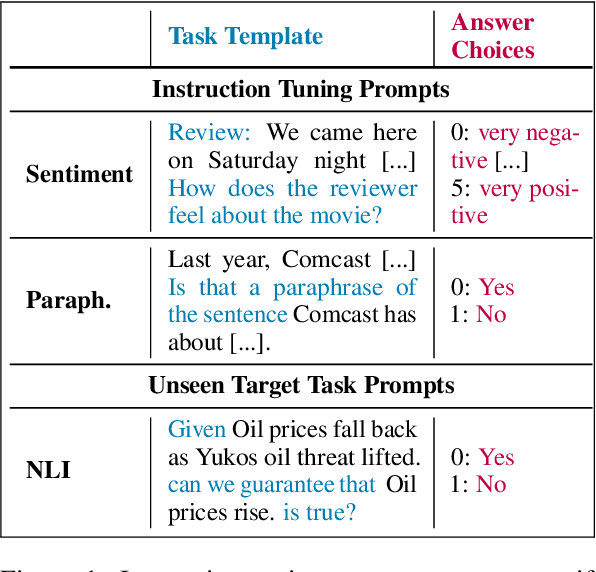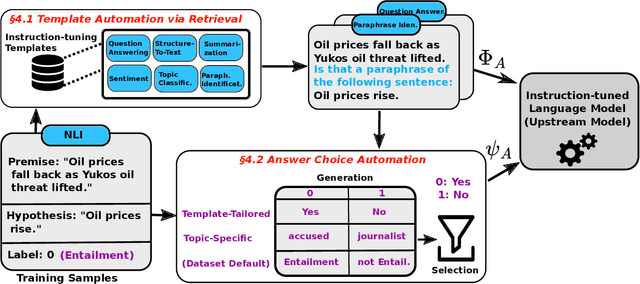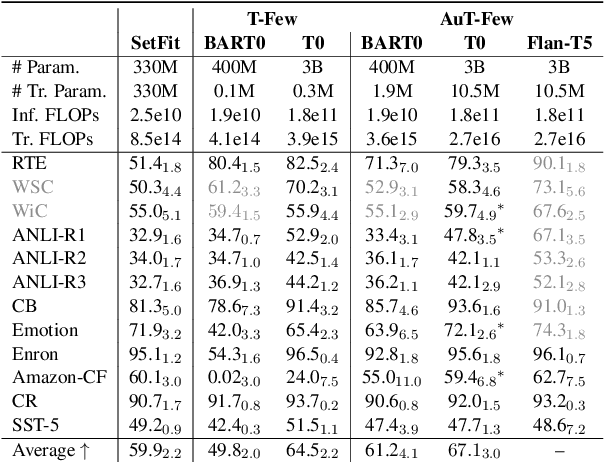Automated Few-shot Classification with Instruction-Finetuned Language Models
Paper and Code
May 21, 2023



A particularly successful class of approaches for few-shot learning combines language models with prompts -- hand-crafted task descriptions that complement data samples. However, designing prompts by hand for each task commonly requires domain knowledge and substantial guesswork. We observe, in the context of classification tasks, that instruction finetuned language models exhibit remarkable prompt robustness, and we subsequently propose a simple method to eliminate the need for handcrafted prompts, named AuT-Few. This approach consists of (i) a prompt retrieval module that selects suitable task instructions from the instruction-tuning knowledge base, and (ii) the generation of two distinct, semantically meaningful, class descriptions and a selection mechanism via cross-validation. Over $12$ datasets, spanning $8$ classification tasks, we show that AuT-Few outperforms current state-of-the-art few-shot learning methods. Moreover, AuT-Few is the best ranking method across datasets on the RAFT few-shot benchmark. Notably, these results are achieved without task-specific handcrafted prompts on unseen tasks.
 Add to Chrome
Add to Chrome Add to Firefox
Add to Firefox Add to Edge
Add to Edge